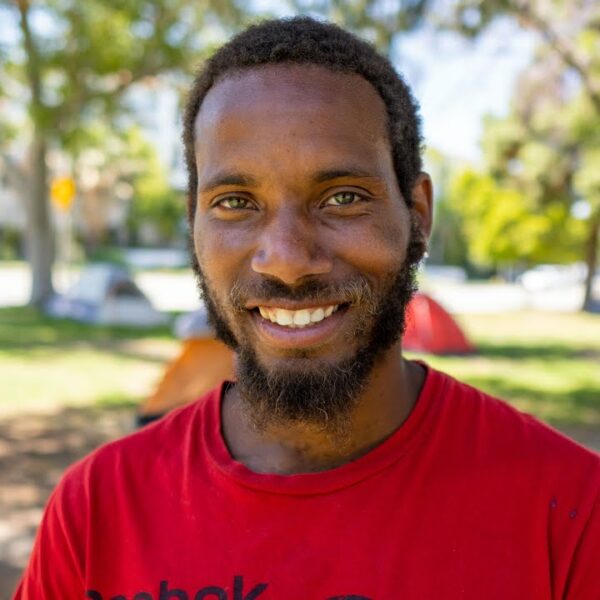Landlords who own rent-stabilized buildings in LA are using a new tactic known as “tenant relocation” to force renters out of their units so they can charge market-rate rents.
The tactic has been developed by a company called Onyx Relocation, which has been helping landlords execute “tenant vacancies” since 2015, according to its website.
The practice is straightforward: landlords pay Onyx tens of thousands of dollars in upfront fees, and Onyx then works to force a given tenant out of their unit. Onyx uses lawyers on retainer and also works to identify “leverage” they can use to evict a tenant, LA Public Press reported. Onyx gets to keep 75% of the fee only if they successfully force a tenant to leave their home.
LA Public Press spoke to 20 tenants who live in rent-controlled buildings. They all said their landlords had stopped maintaining their building and were ignoring health hazards like mold. Others said their landlords were conducting “gut renovations,” which can look like a demolition, while they were still living in the buildings.
Tenants at the Yucca Argyle Apartments in Hollywood said they faced a coordinated harassment campaign led by Del Richardson, who is married to LA City Councilmember Curren Price. Price was charged with ten public corruption charges of embezzlement, perjury, and conflict of interest in June.
These activities are occurring despite LA having laws on its books that are supposed to prevent landlords from willfully causing harm to their tenants by way of housing conditions or threats and intimidation.
One of the most common ways these tenant relocators try to get rent-controlled tenants to leave is through a “cash-for-keys” offer. A cash-for-keys offer is one where a tenant relocator offers to buy out a tenant’s lease in exchange for the keys to their unit. If the tenant doesn’t take the offer, some relocators will resort to more drastic measures.
LA Tenants Union member Rebeca Sanchez told KCRW in August about one encounter she had with tenant relocators who work for her landlord, K3 Holdings.
Sanchez said she rejected an initial cash-for-keys offer because she wanted to remain in her unit. When that didn’t work, she said the landlord began threatening to call immigration on her and approved construction projects that damaged her unit.
“I ended up with not just one hole in my kitchen, but two holes in my kitchen. And they ruined all sorts of things for me in the kitchen,” Sanchez told KCRW. “They even ruined some of the food that I had stored for my children.”
Onyx CEO Shelby Istrin defended the practice in an interview with LA Public Press, saying that her company does not work with landlords who target immigrants, harass tenants, or fail to abide by habitability laws.
Lawmakers have also been monitoring the tenant relocation business and considering ways to improve tenant protections.
On October 11, LA’s Housing and Homelessness Committee approved a plan to spend $58.1 million to bolster short-term rental assistance, eviction defense programs, and tenant outreach. The plan will be paid for by a 4% luxury tax assessed against mansions worth $5 million or more in the city.
However, there is an open question regarding whether the additional assistance will make a difference because LA’s current anti-harassment laws are not being followed. Last year, a report by Capital & Main found that LA received more than 6,000 complaints about tenant harassment and referred exactly zero of them to the city attorney’s office for further investigation.
Sanchez said the lack of action from city officials has forced her and other tenants to take matters into their own hands. Sanchez has helped organize a tenant council for renters at multiple buildings owned by K3 Holdings, and some of the tenants are already embroiled in a lawsuit against the landlord.
“One of the things that we’re working towards together is having them actually repair things and make the things worthwhile that they repair — and have it last,” Sanchez said.
Help Us Make the Truth Louder
Invisible People is on the frontlines of the growing homelessness crisis, where evidence-based solutions take a backseat to political agendas. We’re the only newsroom dedicated to shedding light on homelessness and its related issues. As we kick off our Fall Pledge Drive, your support is crucial. We need your donation to amplify the truth and counter the narrative of criminalization, all while addressing the skyrocketing rents.
With homelessness reaching a crisis level, independent news is indispensable. Your tax-deductible contribution empowers us to pay our reporters, reach a wider audience, produce impactful videos and documentaries, and advocate for real solutions. Join us by supporting the truth about homelessness. Together, we can make a difference.
We are not a corporate newsroom; we depend entirely on our donors to continue our vital work. Your contribution today can make a real difference. Will you help us?













